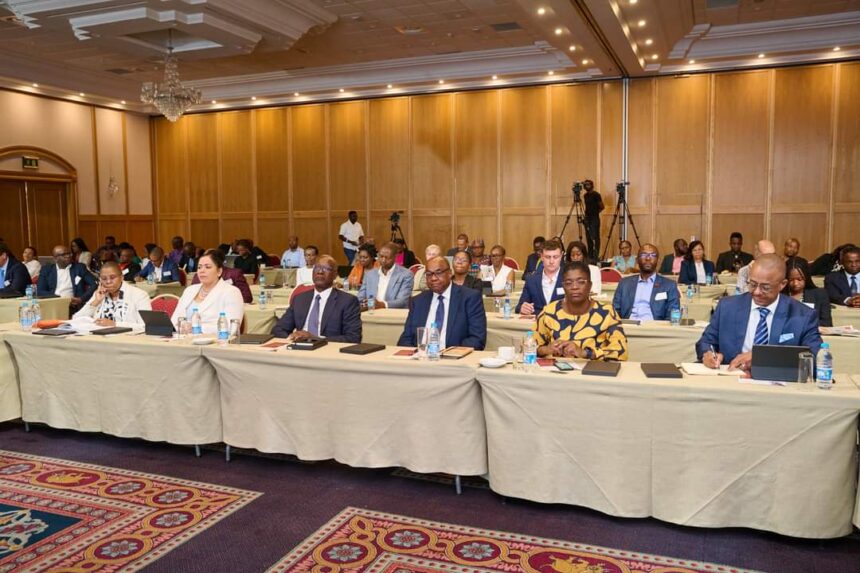Bank of Namibia (BoN) governor Johannes ǃGawaxab said ensuring optimal local content in the exploitation of resources must remain prominent. He thus urged for the finalisation and adoption of the country’s local content policy, which he said is of paramount importance.
“Facilitating local content and participation in the oil and gas value chains has the potential to ensure broad-based benefits from these resources. To avoid and prevent the much-dreaded “resource curse” that has plagued many developing countries with newly-discovered natural resources, the private sector will need to capitalise on these opportunities,” the governor observed.
ǃGawaxab made these remarks yesterday during BoN’s 23rd annual symposium held in the capital under the theme “Maximising economic growth from renewable and non-renewable energy sources in Namibia”.
The annual symposium is a forum designed to bring together policy experts, academics and economic development stakeholders to discuss economic and policy issues on the identified topic.
The governor noted that the aim is to contribute to the crafting of policies and recommendations which will allow the country to exploit the benefits of renewable and non-renewable energy, and review possible options for the country to ensure the appropriate equitable participation of Namibians in these opportunities, now and for the future. “The critical challenge for us is to harness the oil, gas and green hydrogen resources by making the right strategic choices, and synchronising their implementation in a context that improves the lives of the poor through increased investment in health, education, physical infrastructure and other non-oil sectors,”!Gawaxab pointed out.
He further touched on transparency and accountability in allocating resources. “The allocation of these resources should be in a transparent manner; it should be done through an auction or open market bidding. Well-designed auctions can promote the efficient allocation
of resources without requiring governments to have full prior knowledge of resource values or costs”.
At the same event, energy minister Tom Alweendo pointed out that Namibia occupies a unique position in the global energy transition. Given the recent oil discoveries, Namibia is fortunate to have both renewable and non-renewable energy sources.
The mines and energy minister said Namibia faces many socio-economic challenges, but the picture can be changed by using natural resources.
“We must continue to strengthen the culture of effective governance, and to foster ethical and professional
leadership. We will do better and succeed faster when strong governance structures and ethical conduct becomes a must in our society,” stated
Alweendo.



